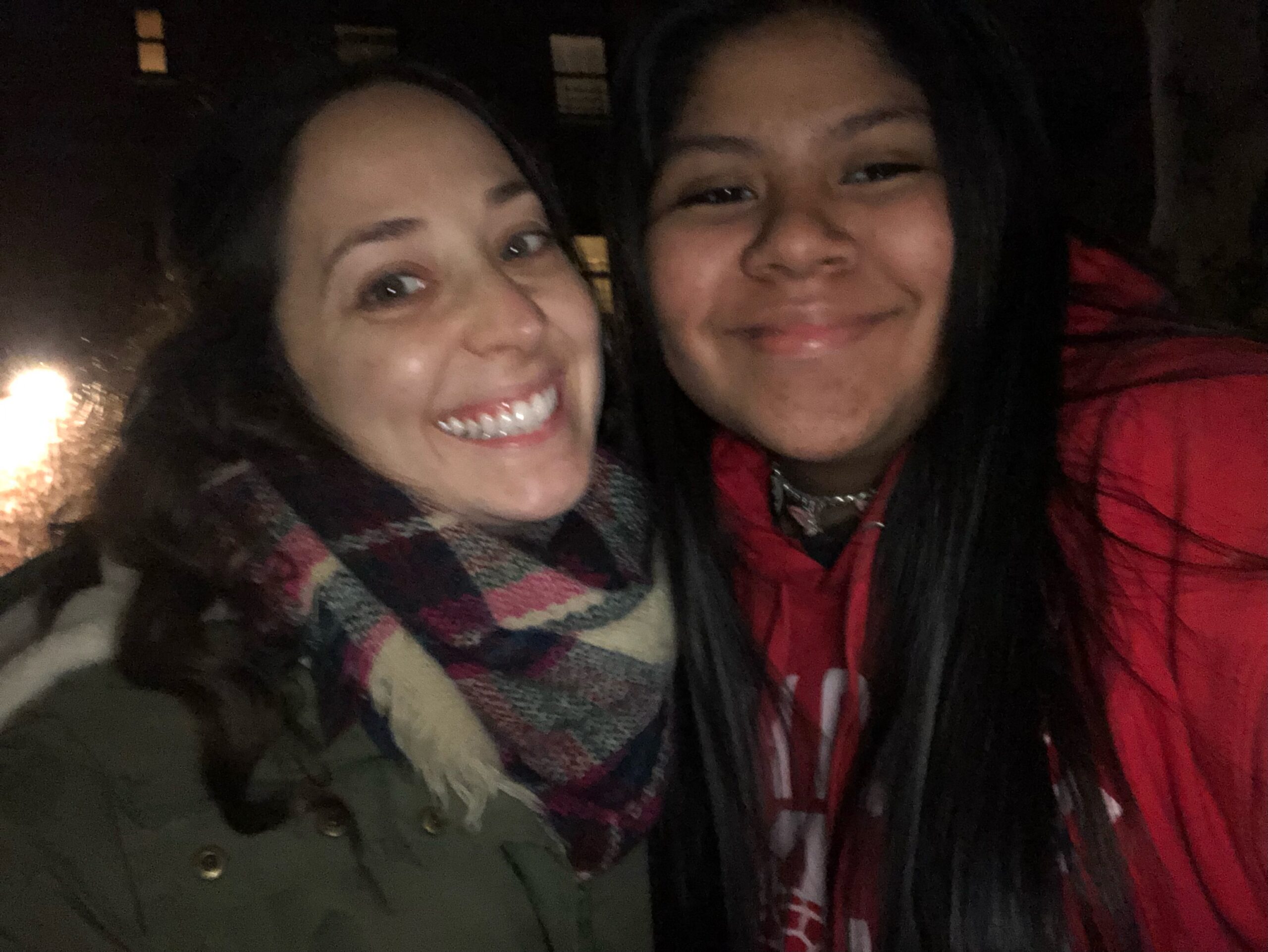
Abigail (right) with Youth Advocate Ms. Barkan
When I first got to middle school, I was super quiet and didn’t have the confidence to talk to anyone, unless they spoke to me first.
This lack of confidence affected my attitude toward my schoolwork. I came into school hating ELA. But Ms. Barkan, who started off as my 6th grade ELA teacher, took her time with me and helped me understand everything.
It took some time, but I began to look forward to Ms. Barkan’s class. We built a strong bond, and when she asked me to participate in the Steps to Success* SONYC-QSI program, I accepted, knowing I would have time to talk with Ms. Barkan.
At first, I was scared to open up to Ms. Barkan and everyone in the group, but I saw that she and the group wouldn’t judge me for expressing my feelings and stating my opinions. They gave me the confidence to speak up and even provide others with advice.
Whenever I experienced any hardships, like others talking badly to me or about me, Ms. Barkan would be the first person I would go to because I didn’t feel judged by her and I knew she would listen and provide guidance. With Steps to Success, I felt that I always had someone to talk to about my feelings, and I knew they were listening to me, wanting to help me and not judge me.
Without Steps to Success and Ms. Barkan, I would still be this shy person, instead of the confident and outgoing person I have become through the program. I wouldn’t be who I am today without them.
Abigail’s Story: Ms. Barkan’s Perspective
By Jessica Barkan, Youth Advocate, the Parsons SONYC program at Q252, The Queens School of Inquiry
Abigail’s story is one that is extra special to me because she started off as my sixth-grade student, right before the pandemic hit, and then Abigail became my mentee in the Steps to Success* program the next school year.
I want you to picture a shy girl who can’t make eye contact, who tries to hide in her hoodie, and who has the lowest of confidence socially and academically. A girl who doesn’t believe she is smart enough to answer questions or as good of a writer as other students.
Due to feeling this way, her grades were lower than they should have been. Abigail was in danger of failing and having to go to summer school. Regarding the social aspect, Abigail didn’t have friends in her class, and it took her a long time to socialize and feel comfortable enough to talk to other students.
This was Abigail when I first met her. My goal was to get her out of her hard shell and build her confidence.
I somehow convinced Abigail to join Steps to Success, promising that it would help her with her social skills and confidence. I even told her that I would make time for one-on-one sessions where she could tell me what she needed support in, and I would walk her through it all.
The process wasn’t easy or quick, but Abigail put in the work. She showed up every day to Steps to Success (remotely at the time, which was an even bigger deal) and participated. I made sure the topics would be of interest to her and relatable. She loved debating and talking about controversial topics, whether those topics had to do with gender, culture, bias, or even just basic communication skills. I had Abigail lead conversations, and this led her to be more confident in sharing her feelings about different topics of discussion.
Over time, Abigail would be the first one to show up to the Steps to Success Google Meet, ready for the next topic. She would confidently participate in conversations and then listen attentively to the day’s discussion.
I started to notice positive changes in other aspects of Abigail’s life. She was completing all of her assignments and receiving passing grades in subjects in which she had struggled previously. She was initiating conversation with other students who were on the “quieter” side, like she herself was. In so doing, she began to come out of her shell, which provided her with more confidence to get her work done. It was as if the social aspect were motivating her to care more about her academics.
Abigail, too, noticed the change. She told me she felt proud of herself because she was doing better in school, felt more confident communicating her feelings to teachers and friends, and finally could appreciate what she brought to the table.
Although Steps to Success was not the easiest or most comfortable process for Abigail, she no longer hides. She is now able to make eye contact, express herself without pause, and feel proud of herself. She has put herself out there socially and has tried harder academically. Is Abigail’s shell still there? Of course, but it is a lot softer now.
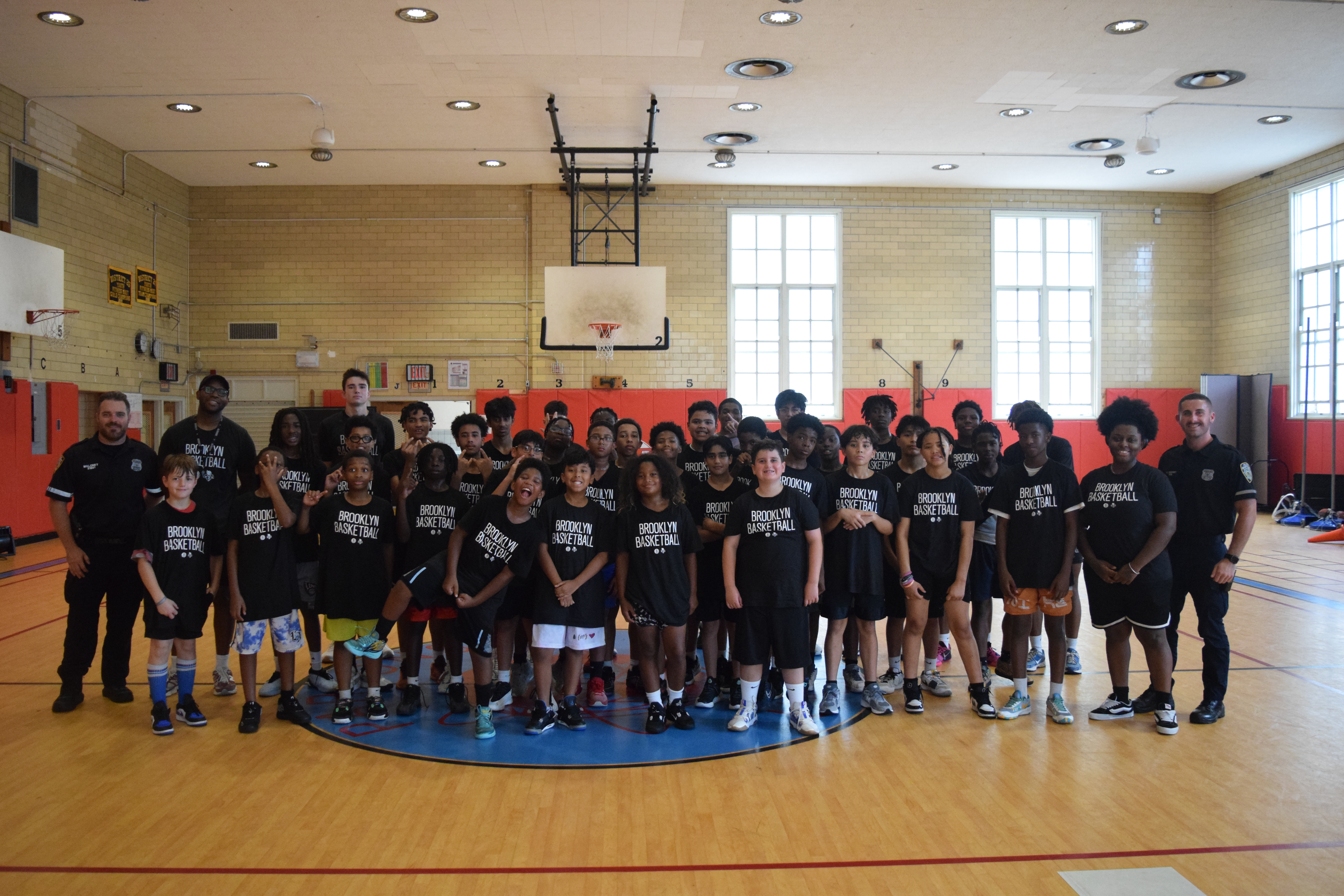 The Brooklyn Nets visited Parsons Community School for a slam dunk event! In a high-energy basketball clinic, 40 young players from four Child Center of NY sites that offer afterschool programs and summer learning camps for middle schoolers—Parsons Beacon, SONYC-QSI, SONYC-Queens United, and SONYC-CASA—got a taste of NBA-level training.
The Brooklyn Nets visited Parsons Community School for a slam dunk event! In a high-energy basketball clinic, 40 young players from four Child Center of NY sites that offer afterschool programs and summer learning camps for middle schoolers—Parsons Beacon, SONYC-QSI, SONYC-Queens United, and SONYC-CASA—got a taste of NBA-level training.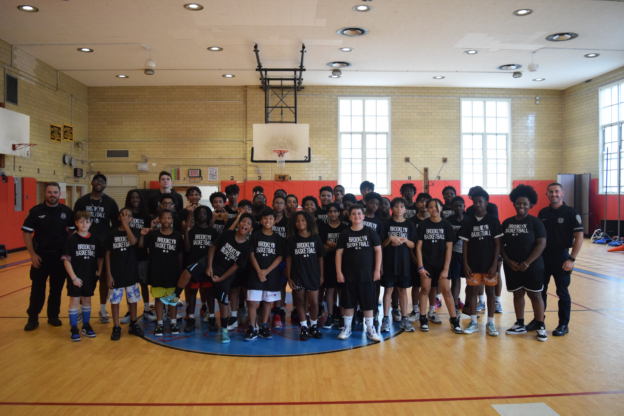

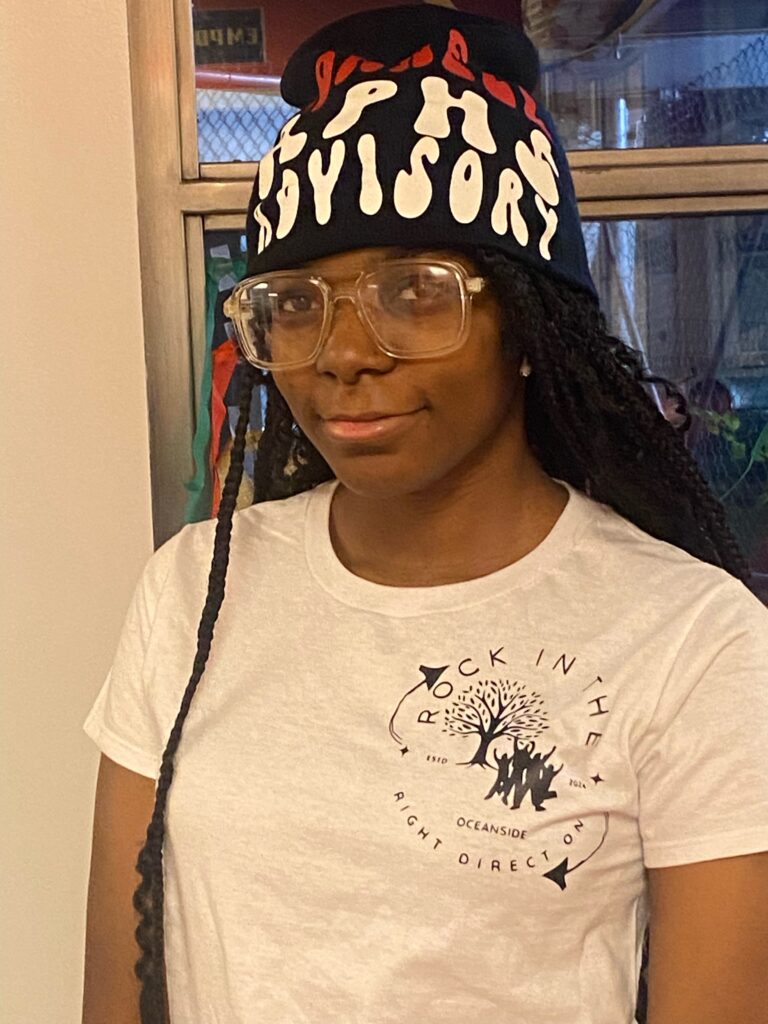
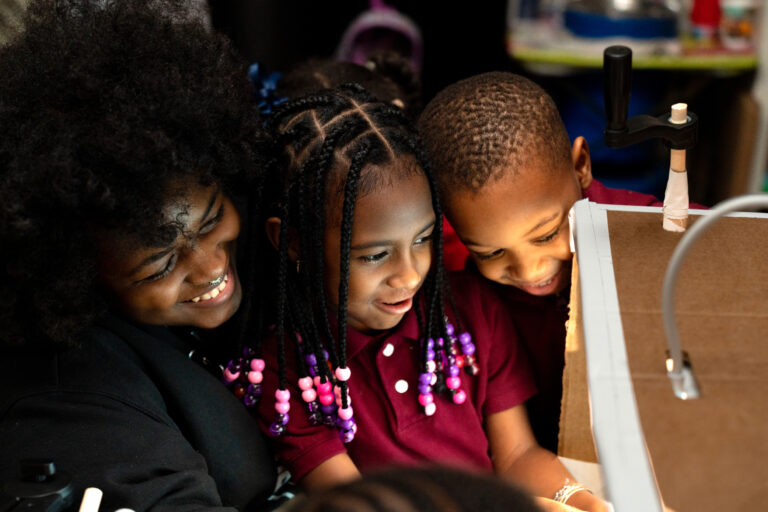

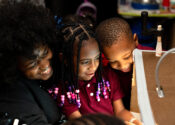


You must be logged in to post a comment.